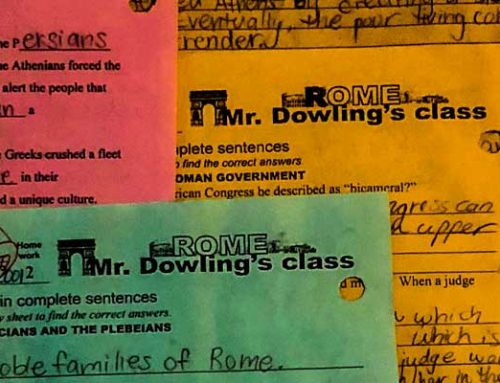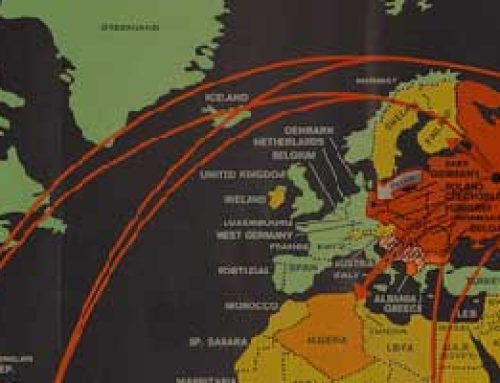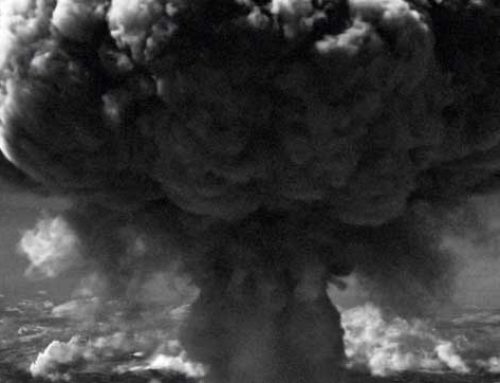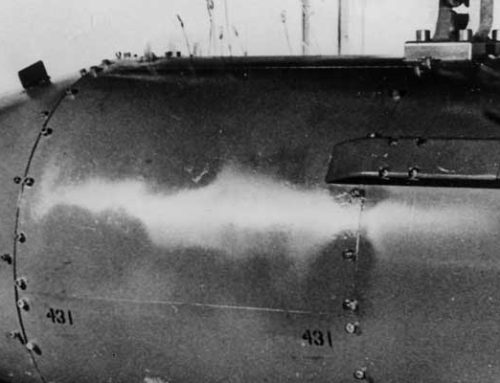Many people believed the Great War would be over in months, but as years passed with no end, some nations lost their will to continue the war. Russia was the first to leave, but the rest of the Allies remained. The Central Powers left the fighting one by one, leaving only Germany to fight the Allies.
Bulgaria left the war, followed by the Ottoman Empire. The Turks were forced to accept terms that whittled their empire down to approximately the borders of present-day Turkey as the British took possession of Mesopotamia. Mustafa Kemal, Turkey’s new leader, urged the humiliated Turks to modernize their nation to keep future foreign powers from taking more land. Kemel’s popularity led to the Turkish assembly calling him Ataturk, or “Father of the Turks.”
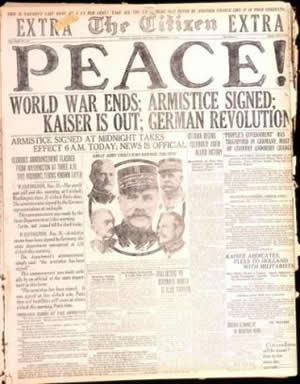
Great_War_is_over
Newspaper announces the end of the Great War
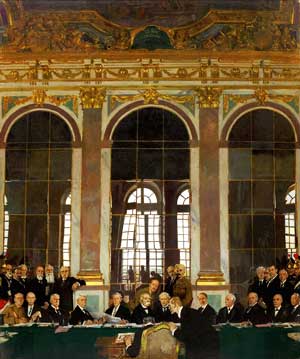
Representatives of Germany and the Allied Forces signed the Peace Treaty that ended the Great War in the Hall of Mirrors at the Palace of Versailles near Paris, France.
The ethnic fighting within Austria-Hungary forced the empire to crumble. By 1918, independence movements had formed in Czechoslovakia, Poland, Yugoslavia, and Romania. Hungary left the empire in October. Many minorities deserted the Austro-Hungarian army and joined the Allied forces. The empire ended when the imperial government surrendered to the Allies,
Left alone to fight the Allies, the weary Germans lost their will. Strikes and civil disorder were frequent by 1918. Germany no longer had the industrial capability or the money to continue fighting. After months of negotiations, Germany and the Allied Forces agreed to end the fighting. On the eleventh hour of the eleventh day of the eleventh month of 1918, the Great War ended. Europe was quiet for the first time in more than four years.
Resources
Download this lesson as Microsoft Word file or as an Adobe Acrobat file.
Mr. Donn has an excellent website that includes a section on World War I and World War II.
The Treaty of Versailles
On June 28, 1919, representatives of the Allied Powers and Germany signed the Treaty of Versailles, ending World War I. The agreement was signed precisely five years after the assassination of Archduke Franz Ferdinand.
British Prime Minister David Lloyd George, French Premier George Clemenceau, and American President Woodrow Wilson met with German German envoy Johannes Bell in the Palace of Versailles, southwest of Paris. Versailles had once been the residence of French kings. In this same room 48 years earlier, a previous treaty created the German Empire.
The treaty stripped Germany of 25,000 square miles and more than seven million people. The pact also limited Germany’s military and forced them to pay for the cost of the war. The economic burdens of the treaty were a factor in the rise of Adolf Hitler and another World War.

